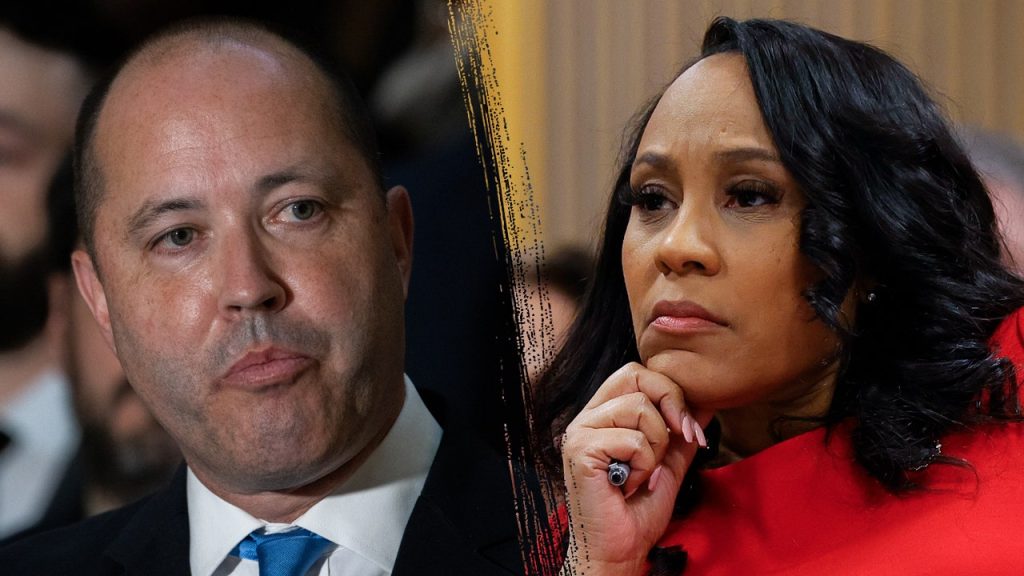The legal battle surrounding the Georgia election interference case against former President Donald Trump has taken a dramatic turn with the disqualification of Fulton County District Attorney Fani Willis from the proceedings. This decision, handed down by a Georgia court of appeals, stems from concerns over an “appearance of impropriety” related to Willis’s romantic relationship with special prosecutor Nathan Wade, whom she had hired to assist in the case. The ruling effectively bars Willis and her office from further involvement in the prosecution, raising questions about the future trajectory of the high-profile case.
Georgia Attorney General Chris Carr, who has announced his gubernatorial candidacy, has publicly weighed in on the matter, urging the state Supreme Court to reject Willis’s appeal against the disqualification. Carr characterized the situation as an instance of “lawfare,” a term often used to describe the use of legal proceedings for political purposes. He expressed his hope that Willis would now redirect her attention and resources towards addressing violent crime within Fulton County. This stance aligns with a broader critique of prosecutorial decisions that appear politically motivated, diverting attention and resources from more pressing public safety concerns.
The controversy surrounding Willis began in February when accusations emerged regarding her “improper” relationship with Wade. This revelation led to Wade’s removal from the prosecution team and ultimately contributed to the court’s decision to disqualify Willis. The court’s ruling emphasized the importance of maintaining impartiality and avoiding even the appearance of impropriety in legal proceedings, particularly in high-stakes cases involving political figures. The court determined that Willis’s prior involvement, particularly during the pretrial phase where she exercised significant discretion in determining who to prosecute and what charges to bring, created a potential conflict of interest that could not be remedied.
While the court’s decision removed Willis from the case, it did not invalidate the indictment against Trump entirely. The case remains active, but the responsibility for its prosecution will now fall to a different prosecutorial team. This transition presents a logistical challenge, requiring the new team to familiarize themselves with the extensive evidence and legal arguments already developed. The change in leadership also raises the possibility of shifts in prosecutorial strategy, potentially impacting the direction and outcome of the case.
The appeals court’s ruling highlighted the potential conflict arising from Willis’s relationship with Wade, particularly during the early stages of the investigation. The court argued that Willis’s involvement in decisions about whom to prosecute and what charges to bring, while simultaneously engaged in a romantic relationship with a member of the prosecution team, created an unacceptable appearance of bias. This concern, the court concluded, warranted her removal from the case to ensure the integrity of the legal process.
The Georgia election interference case holds significant national implications, scrutinizing Trump’s actions following the 2020 presidential election. The disqualification of Willis adds another layer of complexity to the already intricate legal landscape. The case will continue under new leadership, and the impact of Willis’s removal on the prosecution’s strategy and the eventual outcome remains to be seen. The ensuing legal proceedings will undoubtedly be closely watched as they unfold, with the potential to set significant precedents for future cases involving prosecutorial conduct and political figures.


